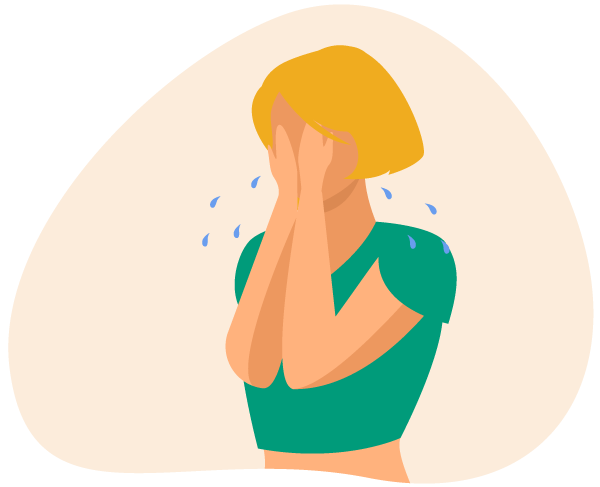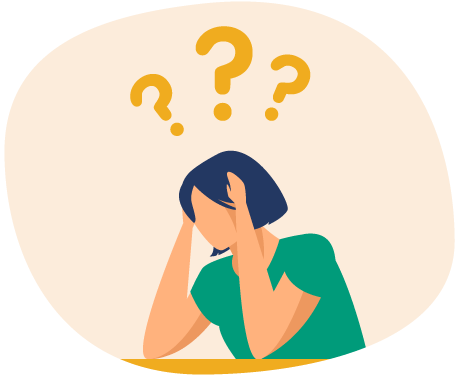Stress, Body Burnout and Bounce Back
With unrelenting stress, our capacity for adaptation is compromised. We’re not bouncing back like we used to because we have not had the chance to heal. Chronic stress leads the hypothalamus gland to stimulate the adrenal glands, which in turn generate and release adrenaline and cortisol. These hormones raise heart rate, blood pressure, respiratory rate, and glucose levels and, sadly, also lower immune function, all of which create risk factors for numerous symptoms and diagnoses. Some people use the term adrenal burnout, which is not an accepted concept in the conventional medical world, but it sure does seem to sum up how many people are feeling.


It’s important to underscore that the way stress impacts any individual relates to their susceptibility, which is influenced by many factors including genetics, coping skills, personality, racism and access to support systems. Some stress can be good, for instance stimulating immune function, or sharpening focus, but too much has the opposite effect. Studies show that chronic stress may also lead to the release of histamine, which can cause allergy symptoms and asthma and rashes.
Psychological stress also alters insulin metabolism and sensitivity, one risk factor for developing diabetes. Stress also affects stomach acids, which can lead to all manner of digestive complaints. It’s also known that ongoing stress contributes to arterial plaque buildup worsened by a high-saturated fat diet and being sedentary This is also known as the Standard American Diet (SAD), which research show is associated with long-term stress that suppresses natural killer (NK) cells, and are important for many reasons, key among them, to prevent cancer metastasis.
Beyond physical ailments, we know that unmitigated and ongoing stressful times are contributing or aggravating factors for depression, anxiety, irritability, and insomnia. All elements of our health are intertwined, that’s why whole person, natural medicine approaches are key to healing, especially now. They offer a fresh perspective on the treatment of stress and how it relates and impacts the human condition.
Though seemingly more common and stronger of late, emotions and the presence of stress are normal parts of life and need to be given time and attention. We are ever more aware that adverse events of childhood, income challenges and being an immigrant and/or a person of color, create additional kinds of stress. Stress is not meted out evenly across zip codes or populations. Indeed, racism, long a public health crisis, has been further highlighted by the pandemic.

Yes, You Can Overcome the Relentlessness of Stress and Burnout
In the book, Burnout- The Secret to Unlocking the Stress Cycle, Emily and Amelia Nagoski do a wonderful job describing the neurobiology of the stress cycle. They write about how every emotion has a beginning, a middle, and an end. You have to feel your emotion and get through it in order to move on. The authors suggest (and I concur entirely) that there are many ways to process emotions including: talking about them, having a good cry, doing regular deep breathing exercises, sharing a caring hug, having a deep belly laugh, getting physical exercise, doing something creative like writing, drawing or singing etc., and feeling like you are connected and have the support of family and friends.

I would add to this, the importance of spending time outdoors, in greenspaces at parks or in the woods. The more we study the need for time outdoors, the more we see its positive impact on overall health. Television, computers, the internet, and video games have become a fallback activity for many children and adults and we’re missing out on the essential role of sunshine, greenspace and time away from screens. Feeling all the way through, especially the more challenging emotions, is one clear way to keep moving forward. See below for more on the Institute for Natural Medicine’s eBook on Nature Bathing in Nature as Healer, Get Outside for Better Health.
What Are The Best Ways To Support Yourself Of A Person Who Is Burned Out Or Languishing? Will These Feelings Ever Go Away? Is There Such A Thing As Adrenal Exhaustion? Or Adrenal Burnout?
The conventional medical literature says no, but we certainly have patients who feel exhausted, have complaints across the physical, emotional and cognitive spheres and seem to experience their problems at least in part, as fallout from chronic stress.[6] There are a number of tools to consider when seeking help for the physical and physiological damage caused by stress.
Nine Natural Necessities to Address Burnout and Adrenal Fatigue:

A healing, anti-inflammatory, appropriate-for-you diet is often key, while addressing any nutritional deficiencies or potential food sensitivities. Work toward balancing blood sugar levels as you are able, by reducing frequent snacking and cutting down on or eliminating refined sugars, refined carbohydrates and alcohol.

Adequate hydration helps and remains easier for some people than others. For my under-hydrated patients, I ask them to set out four small juice glasses of water as a starting goal and we work up from there. We’re aiming for half a person’s weight in ounces. It’s amazing how being adequately hydrated can help many people feel better. I recommend herbal teas or diluted fruit juice, lemon or lime in water as ways to make water a bit more inviting for those who are not big fans.

Sufficient, regular and restful sleep, which is just a handful of words to write but an enormous mountain of a challenge for some. Naturopathic doctors have a broad range of recommendations to help you sleep better.

Exercise as tolerable and I would say for most people more is better, with the caveat that over-exercising, or being exercise-bulimic itself is another contributing factor to feeling overwhelmed and unwell, so check in with yourself about that and seek help if you feel you over exercise as a rule.
By and large I encourage and work to get most of my patients moving more, not less, and remind people that exercise comes in three parts: aerobic, weight lifting and stretching. Exercise is one of the best ways to blow off steam, clear the mind, sweat out natural toxins related to typical metabolism, improve sex drive and help with sleep. Research also shows that it improves quality of life and delays the onset of more than 40 chronic ailments!

Individualized nutritional supplementation or botanical medicines may be called for to address specific or synergistic biochemical issues. The main ones here include:

Vitamin C for its many roles related to improving energy and reducing overall inflammation.

Vitamin B Complex for its roles related to stress and cognition.

Adaptogenic herbs like Ashwagandha and Rhodiola. Each address both mental and physical fatigue.

Licorice root (Glycyrrhiza glabra) is another wonderful plant-based medicine that among many of its biological activities, supports adrenal function. Use deglycyrrhizinated protects which do not raise blood pressure, often abbreviated to DGL.

Curcumin (Curcuma longa), one of the bioactive compounds in turmeric (INM Ingredient of the Month), has so many positive attributes as a culinary and medicinal herb from being anti-inflammatory to carrying anti-oxidant impact. Studies show it also improves overall quality of life.[

There are many others, potentially prescribed for particular symptoms or underlying conditions. Consider working with a licensed naturopathic doctor to help tailor a whole-person plan for you. NDs take time to understand how you feel contextualized within the rest of your life.

Body-mind approaches to help normalize an activated stress response are often in order, to be practiced regularly, so that when especially needed, they are there for you to use! Think here about breathing techniques, mindfulness meditation, Qigong, yoga and hobbies such as art, music and even building model airplanes, anything really that helps you relax.

Simplifying your home and work space a la Marie Kondo. From her website: “The KonMari Method™ encourages keeping only those things that speak to the heart. Discard items that have outlived their purpose; thank them for their service – then let them go. People around the world have been drawn to this philosophy not only due to its effectiveness, but also because it places great importance on being mindful, introspective and forward-looking.”

But you should think more broadly too, not just about material possessions, but about what you are trying to accomplish on any given day. Sometimes we put too much pressure on ourselves to get through the to-do lists, to produce, to be productive, as if we were human doings instead of human beings! A tremendous amount of stress can be alleviated by literally doing less. I know it’s counter-intuitive, but for some of you reading this, you will know exactly what I mean!

There are older, whole person medicines to consider in homeopathy and acupuncture for addressing the oftentimes complex complaints associated with being burned out or feeling overly stressed. Constitutional homeopathy is by definition individualized to the patient. A remedy can address the impact of stress, whether stressors aggravate underlying PMS or insomnia or bring on anxiety and can and also raise your threshold for feeling stress so you are less susceptible to the same interaction, news, experience, person or place. Acupuncture has a long history of helping patients with overall energy level, anxiety and stress, as well as numerous physical complaints that cause pain and discomfort. For most patients, the experience of having a homeopathic case or acupuncture treatment are both interesting and relaxing. Look for an experienced provider for either of these approaches.
I welcome conversations with patients to help identify what the most stressful things are in their lives and to appreciate that there’s the stress and then there’s the stress response. I invite you to work with both ends of this equation. Firstly, to think about ways you might actually reduce your stress, whether letting go of a difficult relative, shifting the work schedule, or adjusting expectations from family members. Then there are all the approaches listed above to help let go and process the stress response. Addressing both makes good sense.
We also need to address any underlying chronic disease states and do our best to mitigate or perhaps reverse those ailments. Depression, overwhelm and burnout are not uncommon side effects of chronic disease but it’s circular too, as stress and depression put us more at risk for certain ailments.
For many patients who are languishing or burned out or have what they consider adrenal fatigue, it will be a long unwinding back to health. But whole-person natural medicines that address root cause, stimulate the body’s inherent healing capacity, and work to reverse the role of chronic stress, can all help. Taking stock and welcoming change plays a role here too, to help people feel better and handle stress without all its undue impacts.
